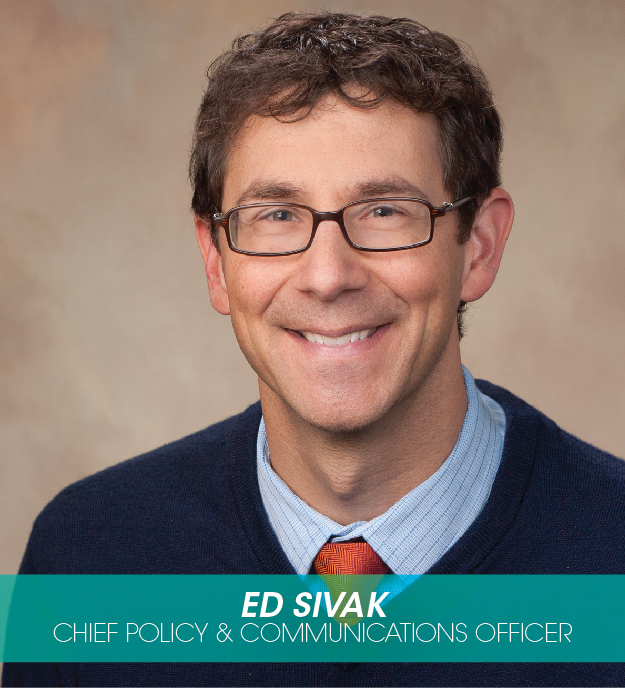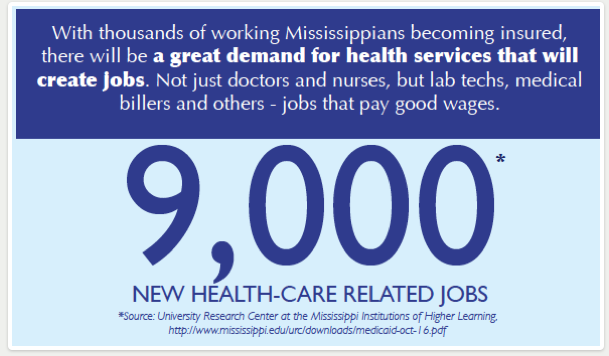Failing to Expand Medicaid Threatens Jobs
January 24th, 2013
On Wednesday, members of the Senate Public Health Committee met to discuss a number of challenges experienced by Hospitals with certain Medicaid reimbursement rates. A number of hospital administrators, the Division of Medicaid and the Mississippi Hospital Association provided information on the topic. During the discussion, the issue of Medicaid Expansion arose. Several points raised by the hospital administrators and the Hospital Association bear relevance on the Medicaid expansion debate:
If Mississippi does not expand Medicaid and Disproportionate Share Hospital (DSH) payments are reduced, certain hospitals will likely need to lay off employees
DSH payments are payments that some hospitals receive to cover some costs of providing care to the uninsured. Over the next several years – regardless of whether or not Mississippi chooses to expand Medicaid – DSH payments will be reduced nationwide as one mechanism to pay for the Affordable Care Act.
During the meeting, one hospital administrator from Singing River in Pascagoula expressed significant concerns about the loss of Disproportionate Share Hospital payments in an environment where the state fails to expand Medicaid. If the state fails to expand Medicaid and the DSH payments go away for Singing River Hospital, the hospital will have to respond by laying off 400 employees.
While it is not likely that Mississippi will lose all of its DSH money, the amount of money available will likely decrease over time. If the smaller pool results in DSH payment reductions to hospitals it is not unforeseeable that hospitals will respond with layoffs.
People who are uninsured use the health care system less efficiently
One other important point raised by multiple speakers was that people without insurance use the health care system less efficiently than people with insurance – regardless of whether or not it is public (Medicaid) or private. When the emergency room is used for primary care – it is an incredibly expensive form of care. The point illustrates the lack of prudence in suggesting that everyone in Mississippi has health care when arguing against Medicaid expansion.
One other point not raised up but highlighted by the American Cancer Society Cancer Action Network includes that people who receive a cancer diagnosis and who don’t have insurance can’t go to the emergency room for chemotherapy or radiation. Suggesting that everyone has health care as response to the hundreds of thousands of people who live and work in our state without health insurance is not a viable policy solution.
The hospitals added an important viewpoint to the growing group of voices that are making the economic and public health case for Medicaid expansion. Simply walking away from Medicaid expansion does not preserve the status quo – there is a cost that could be paid in Mississippi jobs for leaving expansion on the table.







